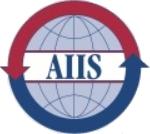Government/Policy

October 27, 2017
AIIS: Section 232 Could Open ‘Pandora’s Box’ of Trade
Written by Tim Triplett
If the Trump administration restricts steel imports under Section 232, it will open the United States to a host of retaliatory measures by other nations and will do little to address the root cause of the problem, which is China, argues the American Institute for International Steel (AIIS), a trade group representing foreign steel producers.
“AIIS has led the effort against imposition of new national security-based trade restrictions on steel imports. These ill-advised trade restrictions would do great harm to our extended steel supply chain, and impair the livelihoods of many men and women,” said AIIS President Richard Chriss in a recent post.
AIIS cites three main reasons for its opposition to Section 232:
· First, new national security-based trade restrictions would do nothing to address the fundamental, underlying problem: China’s prolific use of trade-distorting state subsidies, the principal cause of much of the global excess capacity in steel.
· Second, new national security-based trade restrictions would open the “Pandora’s Box” of trade. “Most of our trading partners have sensitive items they would like to protect from foreign competition. U.S. manufactured goods and agricultural products are highly competitive overseas. If we seek to block steel imports on national security grounds, it is very likely that our trading partners will seize this opportunity and invoke never-before-used national security exceptions to WTO obligations to shield their domestic goods from competition from our exports. Once this process starts, it will be impossible to contain” Chriss maintains.
· Third, new national security-based trade restrictions on steel imports will certainly result in damaging retaliation against U.S. exports, including in areas far removed from steel, such as agriculture, he said.
Excerpting AIIS comments published by The Wall Street Journal Oct. 25: “Rather than impose new trade restrictions under a seldom-used, Cold War-era law, an action that will certainly result in damaging retaliation by our trading partners, the better course is to heed the counsel of Harvard’s Graham Allison, who noted…that China’s influence on the world stage surged as America has retreated. There is no better way for America to constructively meet China’s steel challenge, and at the same time reclaim its international economic leadership, than by organizing and advancing a robust, sustained, multilateral effort under the Global Forum on Excess Steel Capacity, an entity the U.S. helped create, to achieve a workable, long-term solution to the steel over-capacity problem,” Chriss wrote.







